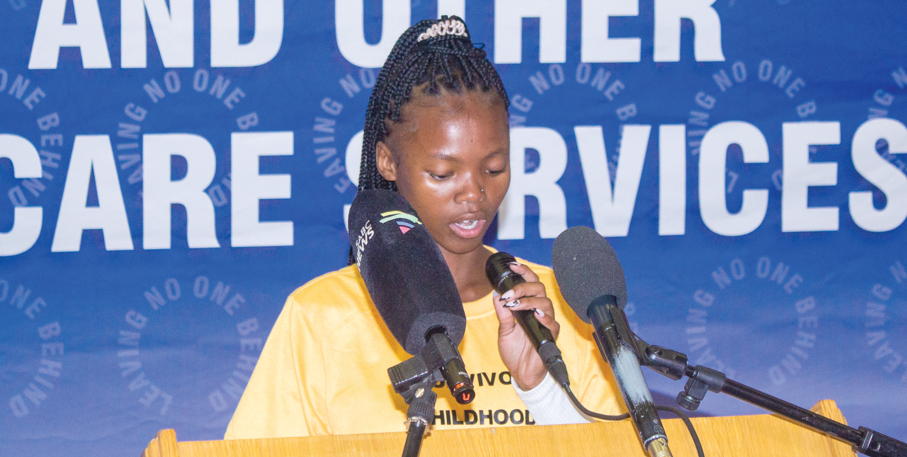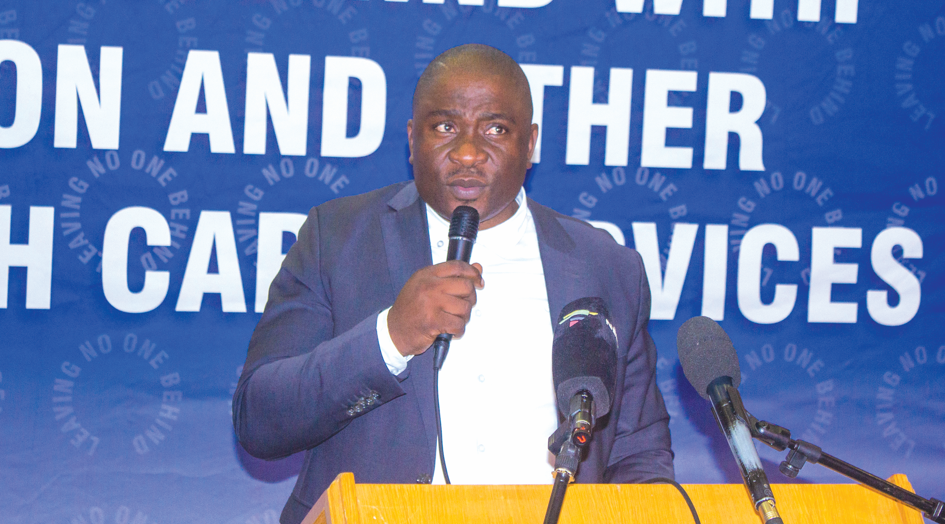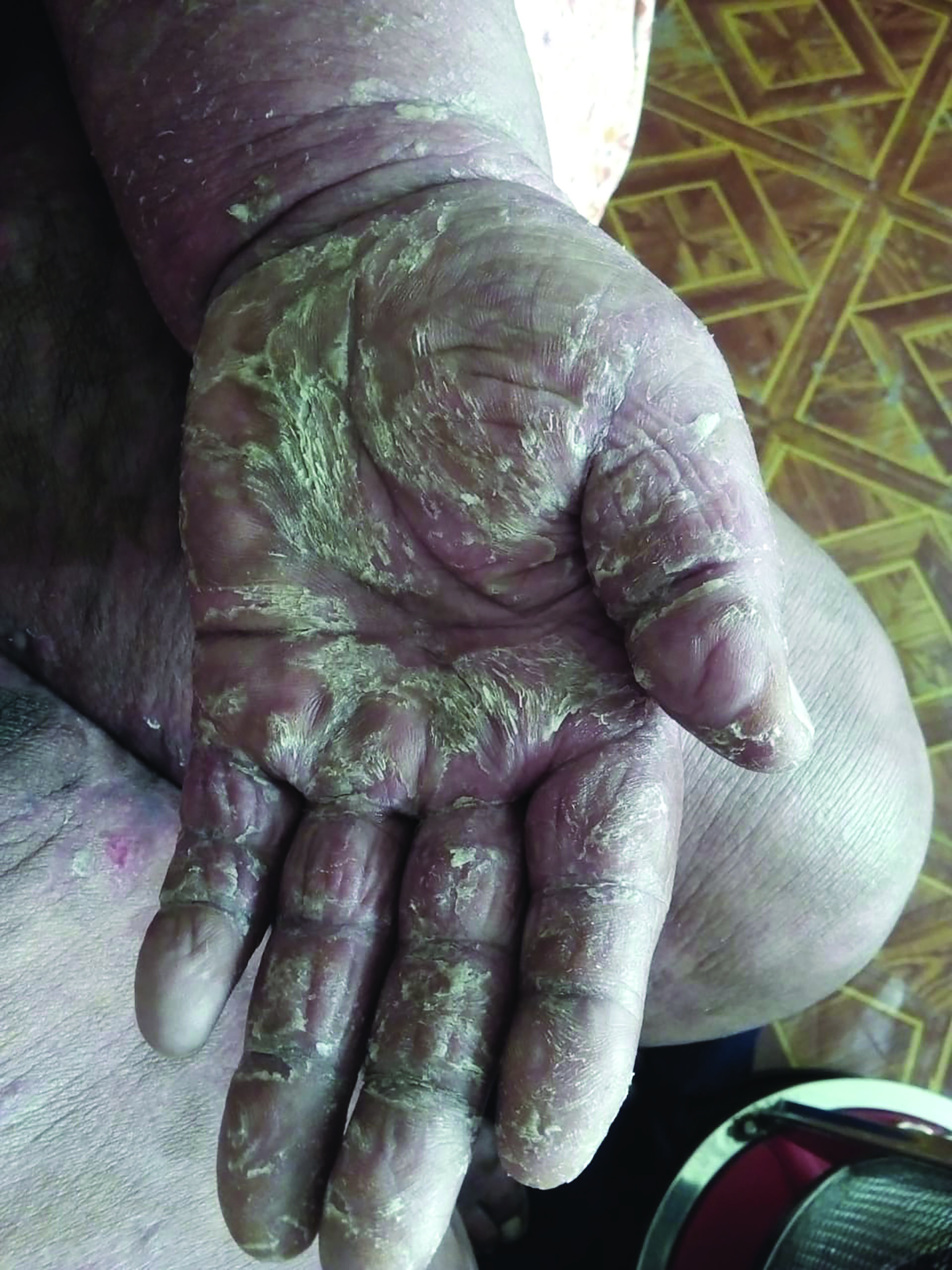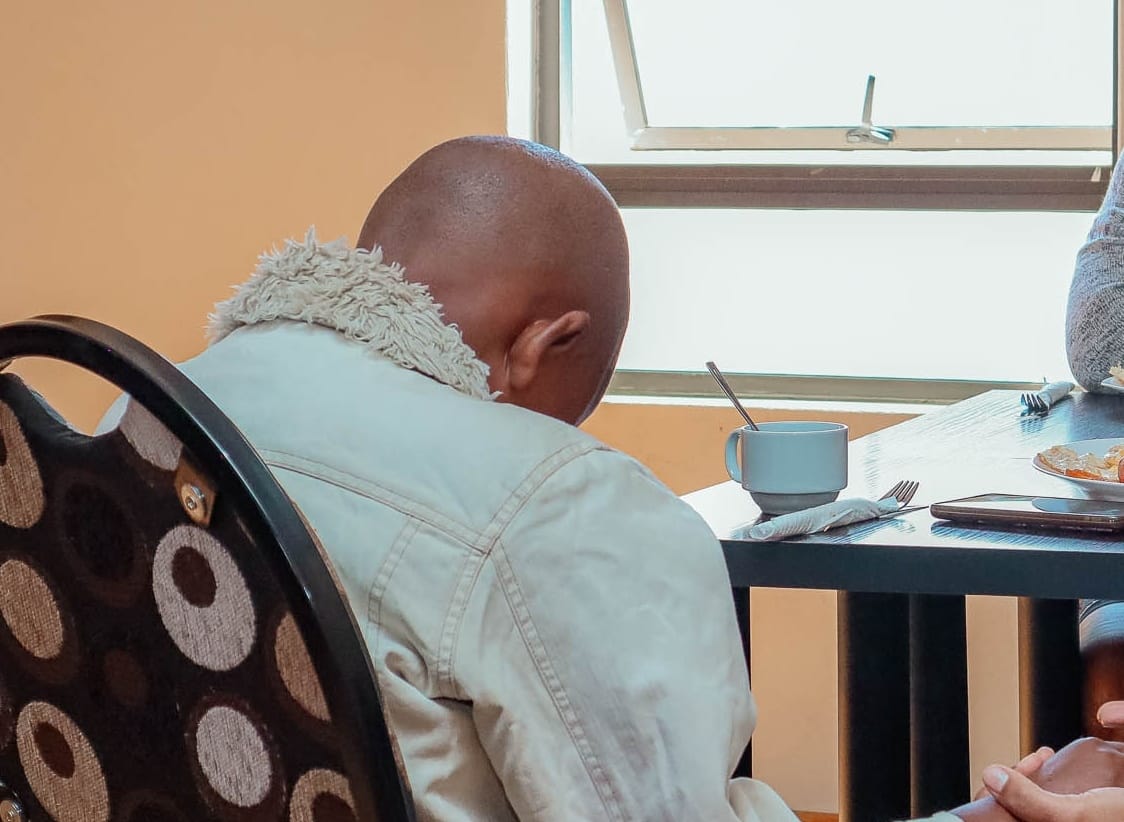Mohau Rakhapu, a 12-year-old from Ha Sariele, Bongalla, in Mafeteng, is on the cusp of a milestone few thought possible when he was first diagnosed with Acute Lymphoblastic Leukemia (ALL) in December 2021.
Mohau’s journey began with a simple symptom – sores on his lips – which escalated into a life-threatening situation when he collapsed at school. That moment changed everything.
His path to recovery has been anything but straightforward, involving multiple hospitals, from local clinics to specialised treatment in Bloemfontein, South Africa.
A life-changing diagnosis
Mohau spent his early years under the loving care of his grandmother. His mother had to leave for South Africa to find work, hoping to give him a better future. Though he was always a slender boy, something changed in December 2021, his health began to decline.
It started with sores on his lips. Worried, his mother urged his grandmother to take him to the clinic, but the long walk was too much for her aging body. With no other choice, Mohau continued going to school, the sores a constant reminder that something was wrong. Then, just as suddenly as they appeared, they healed on their own.
For a while, everything seemed fine, until the day he collapsed at school. That moment changed everything. It was clear now that his illness was far more serious than anyone had realised.
A vehicle was quickly arranged to rush him to the nearest clinic. After an initial check-up, doctors decided he needed to be transferred to Mafeteng Hospital immediately. There, they diagnosed him with low blood, but something about his condition suggested a deeper issue.
From Mafeteng, he was moved to Queen ‘Mamohato Memorial Hospital (QMMH) in Maseru. He stayed there for days, waiting for his mother to return from South Africa. When she finally arrived, she was met with heartbreaking news, his condition was much worse than they had thought. He needed urgent treatment that was not available in Lesotho. His only chance was in Bloemfontein, South Africa.
Standing by his bedside, his mother’s heart sank. Mohau was pale and weak, his small body struggling. He had stopped eating, and his body rejected whatever little food he could manage. She knew deep inside, he was running out of time.
The next morning, they set off for Bloemfontein, desperate for help. But as soon as they arrived at the hospital, Mohau’s condition took a turn for the worse. He lost consciousness and was rushed to a ward.
Doctors surrounded him, working frantically. His mother waited in the hallway, fear gripping her. Each passing hour felt heavier. A terrifying thought echoed in her mind: He’s gone.
Then, a miracle. Her name was called. When she stepped inside, she saw him, alive. Weak but alive.
He was given blood transfusions and medication. By morning, a small but powerful sign of hope, he started eating. Slowly, he regained his strength. Day by day, he got better. Relief washed over them.
But just as hope returned, so did fear. The doctors had a diagnosis, cancer. The word alone sent a chill through her. It felt like a death sentence.
They had arrived in Bloemfontein on December 5, 2021. Now, they were told to prepare for a long stay, at least until January. A new battle had begun.
The fight against cancer
They were not alone in their struggle. The hospital wards were filled with other mothers, each standing by their child’s side, all fighting the same battle against cancer.
Through their shared pain, these women formed a powerful bond, a sisterhood of strength and hope. They comforted one another, prayed together, and held onto the belief that their children would heal.
In January, Mohau was finally discharged, a moment of relief, yet not the end of their journey. Doctors explained that he would need to return to Bloemfontein every two weeks for treatment, along with radiation therapy in Lesotho.
As time went on, the hospital visits became less frequent. The bi-weekly trips turned into monthly check-ups, a sign of progress in Mohau’s fight against the disease.
But the journey took a heavy toll on his mother. Constant travel, medical expenses, and the demands of treatment made it impossible for her to hold a stable job. Financial struggles added to the emotional weight she was already carrying.
Then, in January this year, during a routine visit to Bloemfontein, the doctor shared life-changing news; Mohau would complete his chemotherapy in March. The end of his treatment was finally in sight.
Tears of joy filled his mother’s eyes. A wave of relief and gratitude washed over her. Through every challenge, she had remained strong, never missing a single appointment, never giving up hope. Her love and dedication had carried them through.
A survivor’s perspective

For cancer survivor Joalane Tšupane, Mohau’s journey brought back memories of her own battle. Diagnosed with leukemia at just one year and eight months old, she knew the struggles all too well.
“Hair loss, pain, bleeding, fever, missing my favourite foods, and not going to school like my friends, that was my reality,” she shared.
Now, as a survivor, she dedicates her life to giving young cancer patients hope.
The bigger picture
According to the World Health Organization (WHO), an estimated 400,000 children and adolescents aged 0–19 develop cancer each year. The most common types include leukemia, brain tumors, lymphomas, and solid tumors such as neuroblastoma and Wilms tumor.
Matšepo Ntho, Chairperson of the Childhood Cancer Organisation, revealed that the organisation is currently supporting about 40 children in their fight against cancer.
“They receive all the support they need throughout their battle, and we also assist their caregivers. We help with transport costs to Bloemfontein, provide food or lunch packs, and offer vital information to guide them through the journey,” Ntho explained.
She emphasised that seeing a child complete treatment is a deeply fulfilling moment, as not all children survive. She also highlighted the importance of raising awareness, as many parents still struggle to accept that childhood cancer is a real and pressing issue.
“The most common childhood cancer we see is leukemia, and according to our records, boys are more affected, although girls also suffer from it,” she added.
The fight against cancer in Lesotho
Dr. Innocent Nuwagira, WHO Representative to Lesotho, noted that in 2022, there were an estimated 20 million new cancer cases globally, with 9.7 million deaths.
“About 1 in 9 men and 1 in 12 women die from cancer. In the African region alone, more than 900,000 new cases and over 580,000 deaths were recorded in 2022. This shows that cancer remains a serious and urgent health challenge across the continent,” he stated.
Dr. Nuwagira further explained that between 30 percent and 50 percent of cancer deaths could be prevented by addressing key risk factors such as tobacco use, alcohol consumption, unhealthy diets, lack of physical activity, chronic infections, and exposure to air pollution.
Minister of Health, Selibe Mochoroane, shared that in 2023, Lesotho recorded 1,888 cancer cases, with cervical cancer accounting for 500 of them.
Mochoboroane announced that the country is currently constructing a cancer treatment centre, which he described as Lesotho’s only hope for improved cancer care. The centre is expected to significantly reduce the need to send patients to South Africa for treatment, which currently costs the government M250,000 per patient.
Summary
- Mohau Rakhapu, a 12-year-old from Ha Sariele, Bongalla, in Mafeteng, is on the cusp of a milestone few thought possible when he was first diagnosed with Acute Lymphoblastic Leukemia (ALL) in December 2021.
- Mohau’s journey began with a simple symptom – sores on his lips – which escalated into a life-threatening situation when he collapsed at school.
- But as soon as they arrived at the hospital, Mohau’s condition took a turn for the worse.

Ntsoaki Motaung is an award-winning health journalist from Lesotho, specializing in community health stories with a focus on sexual and reproductive health and rights, as well as HIV. She has contributed to platforms like “Be in the KNOW,” highlighting issues such as the exclusion of people with disabilities from HIV prevention efforts in Lesotho.
In addition to her journalism, Ntsoaki serves as the Country Coordinator for the Regional Media Action Plan Support Network (REMAPSEN). She is also a 2023 CPHIA Journalism Fellow.










